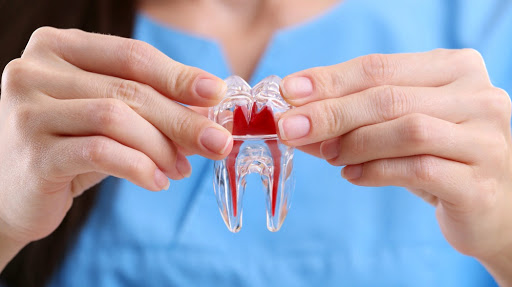
Root canal treatment is a dental procedure that relieves pain resulting from infected or abscessed teeth. The treatment involves your dentist eliminating the irritated pulp, cleaning the damaged tooth, and sealing the hole. Carthay root canal treatment can be beneficial when oral bacteria invade the tooth pulp. Cracked teeth and untreated cavities resulting from trauma can lead to bacteria invading the pulp. Your dentist can recommend root canal treatment if you have persistent tooth pain, loose teeth, tooth sensitivity, or swollen gums. Depending on the extent of the infection of your teeth, you can have one or two appointments for root canal treatment,
What should you expect before root canal treatment?
Your dentist may recommend you take certain antibiotics and anti-inflammatory medications before the root canal therapy. Medications are usually prescribed to patients with severe infections. Avoid smoking several days before treatment, as tobacco products slow the healing process.
What happens during the root canal treatment?
Before beginning the root canal treatment procedure, your dentist will take an X-ray of the damaged tooth. The test helps the provider get a detailed view of the affected tooth and determine whether root canal therapy is the correct treatment option. If you are a good candidate for the procedure, your dentist administers local anesthesia to numb the affected tooth and surrounding gums. The dentist may involve sedation if you experience dental anxiety.
Your specialist will place a small rubber dam over the region to isolate the tooth and keep it dry. The specialist then makes a small opening in the crown of the damaged tooth to access the pulp and extract the nerves, blood vessels, and tissues inside the tooth. Once the specialist removes the pulp, the provider will clean, disinfect and shape the canals.
After cleaning the canals, your dentist fills them with a flexible, rubbery dental material known as gutta-percha. The dentist then places a temporary dental filling to seal the tooth and prevent bacteria from re-entering. Your dentist will most likely put a dental crown to protect the treated tooth and restore its function. In some cases, you can have a permanent crown same treatment day.
What happens after root can treatment?
After root canal treatment, your healthcare provider will tell you not to eat until the anesthesia and numbing effect wears off. You may experience side effects like pain, sensitivity, and gum swelling, but the side effects often fade within a week or two. Your dentist may prescribe painkillers to manage the side effects. Consult your dentist if you experience extreme pain or bleeding.
Which complications can you encounter after root canal treatment?
Although rare, you may have complications after root canal treatment. They mostly develop if your tooth is extremely damaged or unsuitable for the treatment. Common root canal treatment complications include severe bleeding, pus, swollen gums, sinus issues, and a boil or pimple on your gums.
Root canal treatment is a dental procedure that relieves pain resulting from infected or abscessed teeth. It involves your dentist removing the damaged pulp, cleaning and disinfecting the space left, and sealing it. Schedule an appointment at Smile Perfector Dental Group for root canal treatment to relieve your persistent tooth pain.